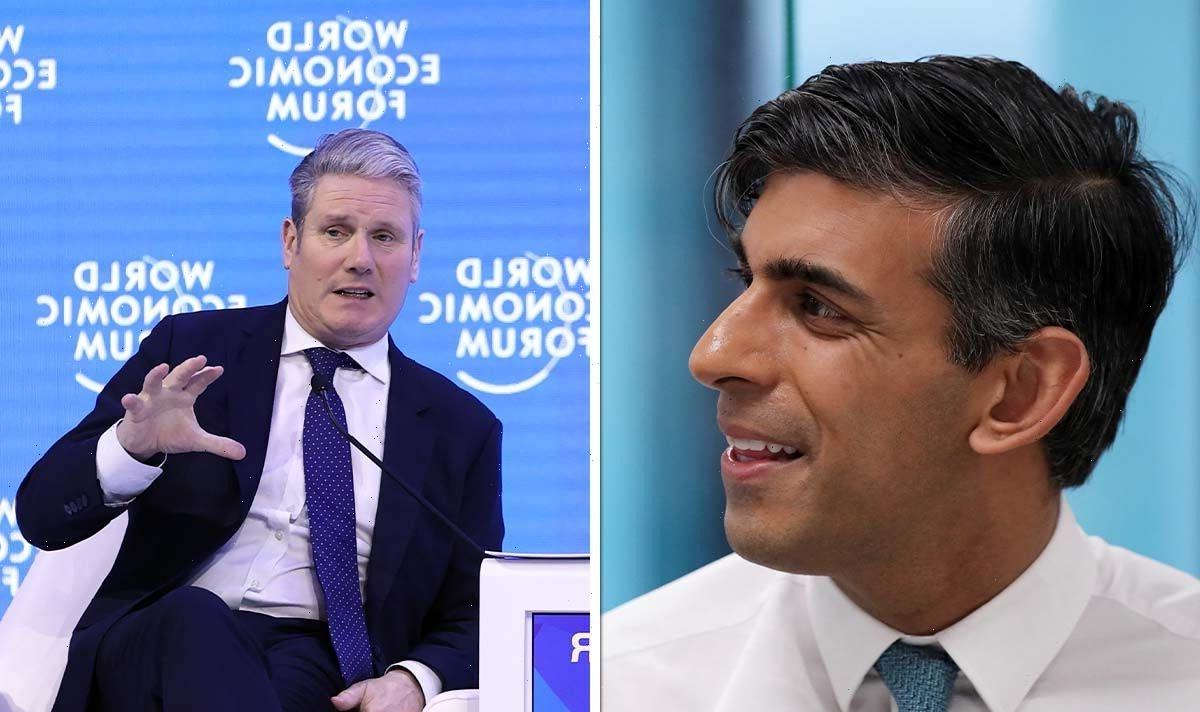Miliband left on the spot as Munchetty probes Labour energy plan
We use your sign-up to provide content in ways you’ve consented to and to improve our understanding of you. This may include adverts from us and 3rd parties based on our understanding. You can unsubscribe at any time. More info
The Labour Party has urged the Government to stop the energy price cap from rising in April after experts predict that Britons could pay £3,200 by then. Over the past year, households have been reeling from the worst effects of a fossil fuel energy crisis, as the price on average energy bills is currently at an unprecedented £2,500 per year. Prior to the Government stepping in to freeze the bills increase, Ofgem had raised the energy price cap to around £3,500 a year last October. But as the end date for the Government’s bills subsidy looms, Labour has urged Mr Sunak to stop the energy price cap from rising in April in a bid to protect millions of families from being thrown into fuel poverty.
To pay for this support, Labour’s Shadow Chancellor Rachel Reeves has called for a one-off windfall tax on energy giants, to pass on savings of £1,400 a year to households.
Ms Reeves is set to outline the package during her keynote speech at the Fabian’s Conference on Saturday, claiming that the revenues earned can be passed on immediately.
She is expected to say: “Millions of households are still looking to a 40 percent increase in their energy bills, in April. On a week when temperatures fell below zero, I know many families and pensioners will be feeling the pressure particularly acutely.
“And at the same time, energy companies continue to enjoy record profits. That cannot be right.”


Talking about Labour’s long-term energy strategy, she is expected to say: “Sticking plaster politics is not enough.
“We cannot persist with walking into a crisis unprepared, and at the last minute producing hugely expensive fixes to get us through, while the underlying problems – those weakened foundations – remain untouched.
“That is why Labour has a plan to reach one hundred percent clean power by 2030 and retrofit millions of homes. These policies could save a typical household up to £1,400, generating savings not just for one year but for every year to come.”
While Ms Reeves has argued for a one-off windfall tax on energy giants, such a move could cause shocks in the UK’s oil and gas industry, particularly as the UK’s largest oil and gas producer in the North Sea is set to slash jobs as a result of the windfall tax imposed by the Government last year.


On Wednesday, Harbour Energy told its staff its plans to cut jobs following the windfall tax imposed on the energy sector last year. The company has repeatedly criticised the levy imposed on oil and gas producers and even opted out of investing in the Government’s latest oil and gas exploration licensing round over the issue.
Harbour said that it would cut jobs in its headquarters in the North Sea hub of Aberdeen, Scotland, the scope of the job cuts has not yet been confirmed, and will be subject to consultations.
This comes days after research firm Cornwall Insight’s latest forecasts for the Default Tariff Cap, commonly referred to as a price cap, have shown that energy bills will fall twice this year.
They estimate that without Government support, a typical household will pay about £3,208 from April. While this is significantly higher than what Britons are paying right now, the price cap was previously estimated to hit £3,545.31 in the same period.
DON’T MISS:
Tech startup offers £800k reward to use robot lawyer in court [INSIGHT]
Most Brits don’t have a clue about the heat pumps [POLL]
Energy bills rise by £116 for 2.5million homes despite cap [REVEAL]

The energy experts also predicted that after the April to June quarter, households’ energy bills will tumble to approximately £2,200 from July, and would stay that way until the end of the year.
This a major lifeline for households across the UK, as prices are expected to be £300 lower than previous predictions, and going even lower than what households are paying right now.
While energy prices are set to fall below the Government’s current price cap, in April, the Energy Price Guarantee is set to be raised to £3,000 per year, meaning that households could pay an additional £500 on their energy bills per year.
April also marks the point where the £400 Energy Bill Support Scheme ends, meaning that without support, households could end up with £3,000 per year on their energy bills between April- June.
Source: Read Full Article
